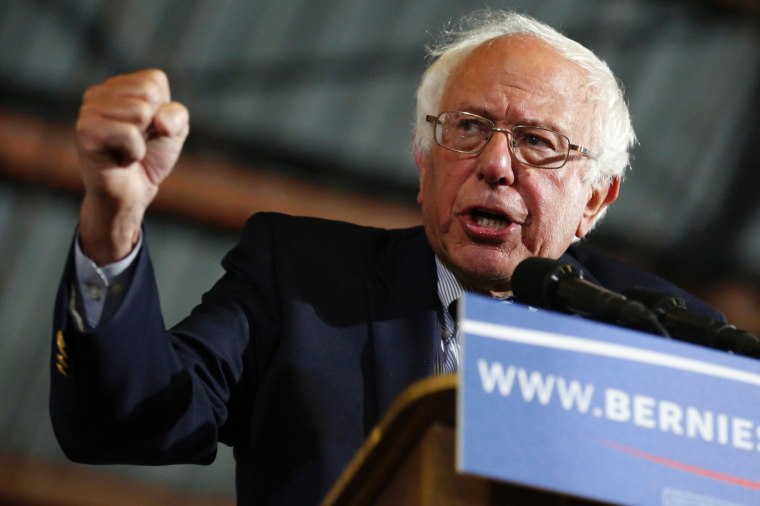Bernie Sanders is not ready to concede his presidential campaign, nor is he ready to throw his support behind Hillary Clinton, leaving his political future murky.
That was the takeaway from a much anticipated teleconference Sanders held with supporters Thursday evening, more than a week after Clinton clinched the Democratic presidential nomination and amidst the flight of many of his top supporters.
Related: Full coverage of Decision 2016
Instead, in his address, Sanders focused on the need to continue the “political revolution” beyond his campaign in order to advance his agenda and elect progressive leaders at all levels, while also paying special attention to defeating Donald Trump.
“Election days come and go. But political and social revolutions that attempt to transform our society never end,” Sanders said during the address.
More than 218,000 people tuned in to watch, according to the campaign, with a peak of 104,000 watching at any given moment.
“The major political task that we face in the next five months is to make certain that Donald Trump is defeated and defeated badly. And I personally intend to begin my role in that process in a very short period of time,” Sanders said. “But defeating Donald Trump cannot be our only goal. We must continue our grassroots efforts to create the America that we know we can become.”
Sanders thanked the 1.5 million people who came out to support him at rallies and the millions more who voted for him or donated to his campaign, saying they must take that energy to the Democratic National Convention in July, noting that he had 1,900 delegates in his corner.
And he focused on the policy goals he hopes to see Democrats embrace, from a $15 minimum wage to a reinstatement of the Glass-Steagall Wall Street reform law.
Related: Sanders' First Congressional Backer Flips to Clinton
But what Sanders did not say was anything conciliatory about Clinton.
He used the present tense to note that he and Clinton “have strong disagreements on some very important issues.” He did add that “our views are quite close on others.”
And while he said he wanted to work with Clinton, he suggested it would be on his terms.
“I also look forward to working with Secretary Clinton to transform the Democratic Party so that it becomes a party of working people and young people, and not just wealthy campaign contributors,” Sanders said.
He encouraged supporters to run for elected office and set up a page to collect their information.
He also criticized the Democratic Party for not working harder in parts of the country that don’t typically vote Democratic, calling loses in state legislatures under President Obama “unacceptable.”
It’s the kind of talk that has agitated Democrats, who note Sanders lost the primary and was never a member of the party until he ran for president.
Where Sanders goes from here remains unclear.
While technically still a candidate for the presidency, Sanders now has no events on his schedule. And top aides have essentially acknowledged that they’ve given up on trying to actually win the nomination by flipping superdelegates to their side.
Sanders and his aides and allies have been debating in recent days how best to proceed. Do they fully endorse Clinton? Offer some weaker form of support? Or just focus on defeating Trump?
They seem have chosen among one of the least conciliatory paths. Many around Sanders were concerned that fully embracing Clinton could depress the enthusiasm of his hardcore supporters and argued that by keeping his candidacy alive in some form, Sanders can keep his voters energized in a way that will ultimately help Democrats.
And they note that Clinton is ahead of Trump without Sanders’ support in recent polls. But by that same token, that gives Sanders less leverage with which to bargain.
The hours leading up to the teleconference underscored how events are already moving past Sanders. The AFL-CIO voted to endorse Clinton with the support of some of the unions that backed Sanders. And Sanders’ first congressional supporter, Arizona Rep. Raul Grijalva, announced he was now supporting Clinton.

